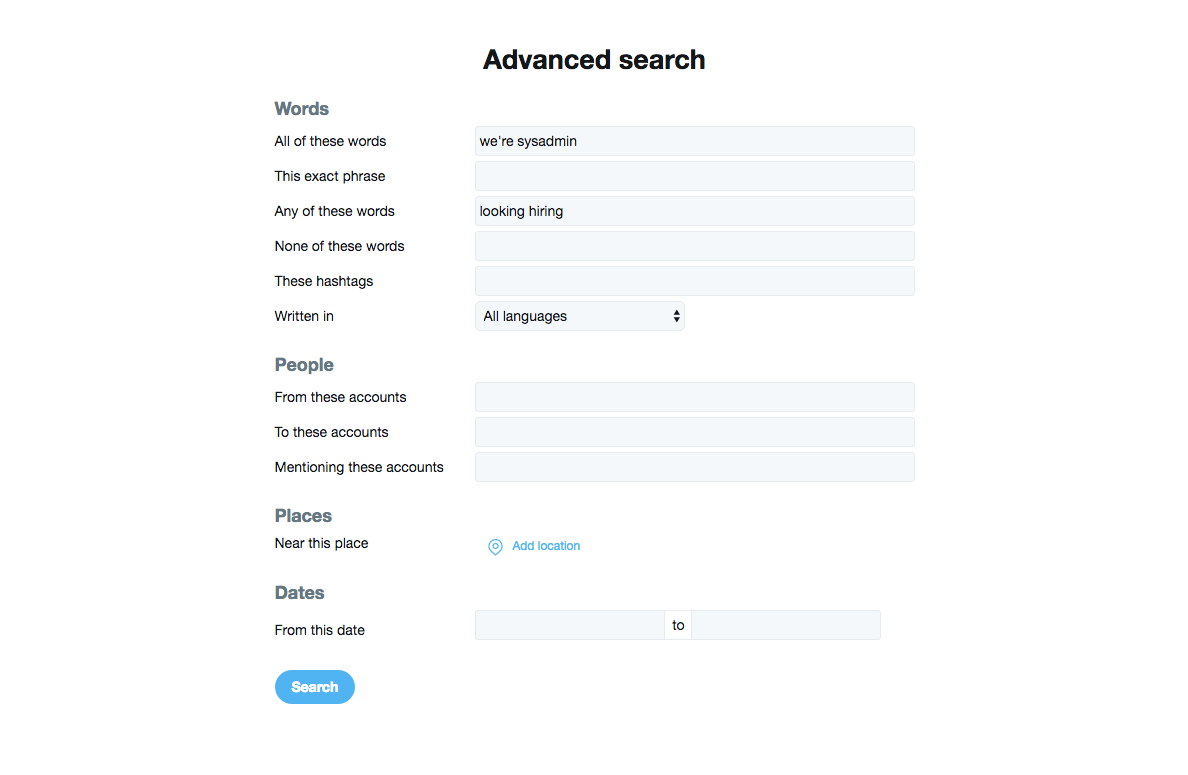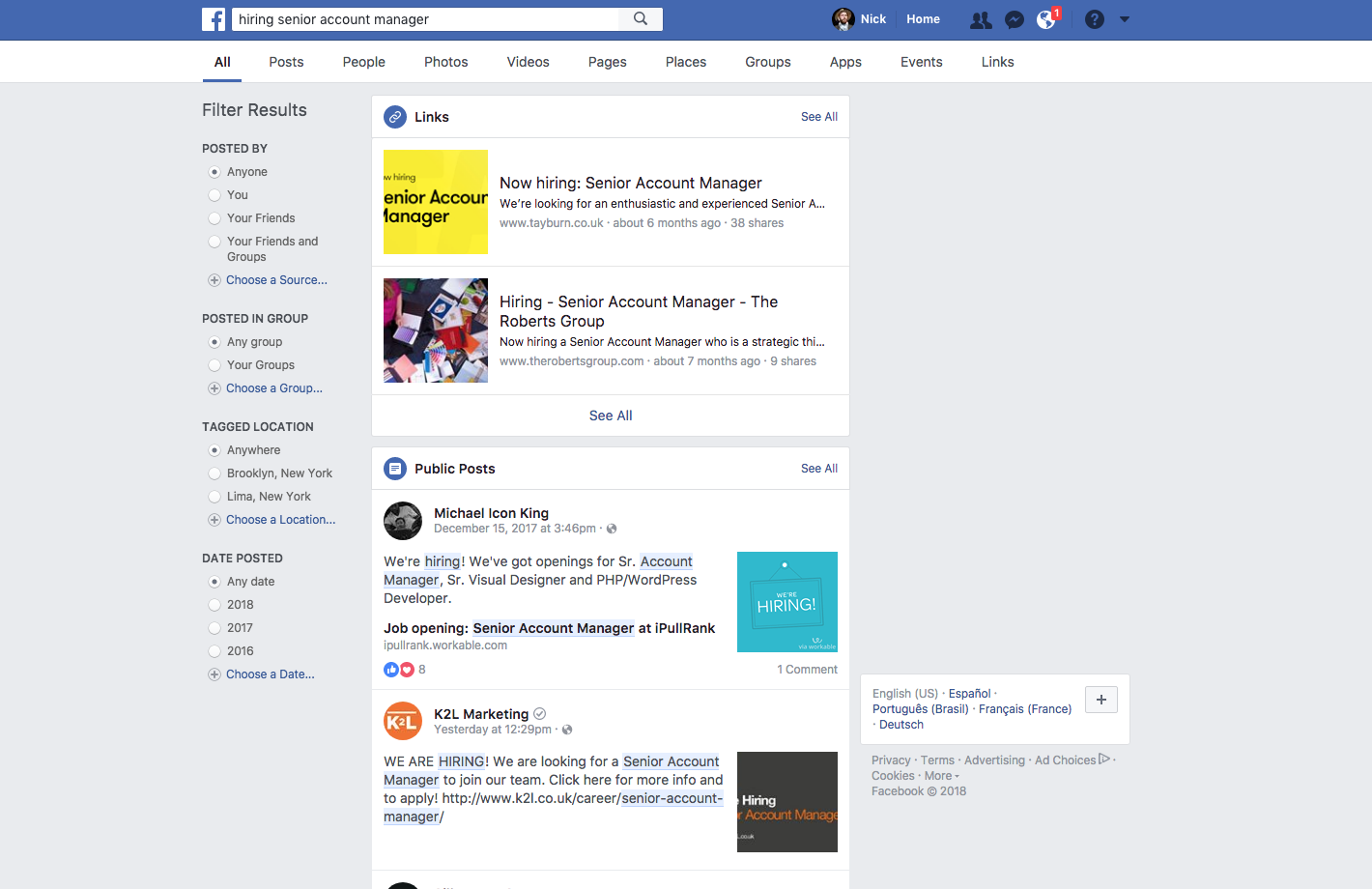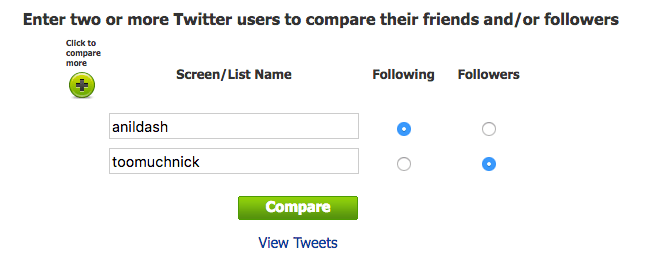Job searches are already a complicated stress-maze of multiple sites, searches and alerts, so you might think it’s bad news that you also need to expand your search to social media. But actually, Twitter and Facebook can be a relatively (relatively) pleasant part of the job search process.
Twitter execs get their jobs through secret Satanic rituals. (Photo by Gene Wang)
Start with the strategies in this Star Tribune piece: On Facebook, LinkedIn and Twitter, follow people in your industry, the pages of places you’d like to work, and people who write about your industry. Try talking to them now and then, including times when you aren’t looking for a job.
But this is just a lot of common sense applied to social media. We have some more specific tactics for expanding your job search to Twitter and Facebook.
Why you need to do it
Most social media posts about a new job include a link back to the company site, or one of the usual job sites. But they also face the real world, so you can actually talk about the job and find an “in”. You can even specifically ask the person who posted the link to put in a word for you – it doesn’t have to be a ringing endorsement, just enough to pull you out of the slush pile of applications that might otherwise go unread.
Unless you’re looking for a very specific job title, most of your job search is spent sifting through piles of irrelevant, or even objectively worthless, job postings. But the job notices on social media tend to be more relevant:
- They’re less likely to be “courtesy postings” for a job that’s already being filled offline.
- They’re more likely to be somewhat desirable jobs.
- Unlike official job listings, they come with a social context.
- You can talk to the person posting them.
Of course, they have a couple of downsides:
- They aren’t organised into a database.
- They’re more visible, so they attract more competition.
- They’re more concentrated around white-collar jobs.
That’s why you need to set up (yes, another) customised search.
How to set up a job alert
Search for a combination of job keywords, and words or phrases such as “we’re hiring” or “we’re looking” or “join my team”. Try finding what language people use to describe jobs in your field. Set up several searches rather than one comprehensive search.
Twitter’s advanced search page lets you specify several terms, but it doesn’t let you put multiple phrases into the “any of these words” field. So you might have to get creative to make a search comprehensive. Here’s a sample search for sysadmin jobs:

Keep tweaking your search until the results are relevant. Then hit “Follow search” in the top right. Twitter won’t give you alerts for your followed searches, but you can check them all by clicking the search bar from any Twitter page.
You can set up several of these searches at once. Include a couple of friends-only searches, so you can pay special attention to jobs where you can get a direct referral.
Next, look for accounts that regularly post a certain kind of job listing. These automated accounts don’t have all the advantages of human posts, but if you find one that fits your field, level and location, you can tell Twitter (in the dropdown under the “Follow” button) to notify you every time it tweets.
You’ll have to bookmark your Facebook searches, as Facebook won’t save them for you. Again, use some public searches and some friends-only searches.

Join some Facebook groups related to your field, favouring groups where your friends are members. Tell Facebook to notify you of all new posts in those groups, or of “highlights”. Follow public pages and people that tend to post about relevant jobs.
How to respond to a job listing on social media
Even if you aren’t trying to hide your job search from your current employer, try to respond to these social posts privately. DM the person who posted, and be as polite as you would over email or a cover letter. Even if you know them personally, you’re approaching them in a high-stakes context, so you need to make them feel comfortable and respected.
If their DMs aren’t open, try an @-message that is not a reply to the job listing, asking for private info (and implying the context of your request). It’s just more discreet to have this conversation away from the post itself, where all the other job seekers are crowding, too.
Find the closest social connection you have to the person who posted the job. Ideally, find them on LinkedIn or Facebook (don’t friend them!) and look for mutual connections.
If that doesn’t work, look for people who they follow, who follow you. For instance, if I wanted to ask software CEO Anil Dash about a job he mentioned, I’d go to TweepDiff and search like this:

This is the most efficient way to find people I actually know, whom Anil might actually know too. Then I can say “Hi, I’m a friend of Mallory’s! I saw this post of yours. May I ask a couple questions about the job?”
Don’t stretch this to some awkward level; only use it if it improves your standing from “random Twitter stranger”. And don’t make it braggy, like “Hey, that person you like follows me.”
Before you contact anyone, make sure your Twitter profile makes a good impression, that your photo, link and bio make you look professional and provide more context for who the hell you are, and that your last few tweets aren’t embarrassing, or that your Facebook posts about unemployment don’t look too desperate when you read them all at once. And of course, link to your portfolio.
And be a giver. Whenever you see a worthwhile job listing crop up in your usual feed, or even if your searches turn up something really cool that’s not for you, share it.

Comments